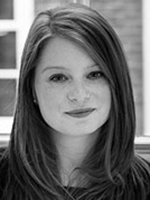Clara Hamer
2015 British Pegasus Scholar Report
 The Pegasus Scholarship has long been about the broadening of legal horizons. Undertaking a packed seven-week programme of legal and political activities across the US hosted by the American Inns of Court (AIC) – a national association of lawyers, judges, and other legal professionals dedicated to promoting professionalism, civility, ethics, and legal skills among the American bar and bench – certainly broadened mine.
The Pegasus Scholarship has long been about the broadening of legal horizons. Undertaking a packed seven-week programme of legal and political activities across the US hosted by the American Inns of Court (AIC) – a national association of lawyers, judges, and other legal professionals dedicated to promoting professionalism, civility, ethics, and legal skills among the American bar and bench – certainly broadened mine.
The experiences organised for me and my co-scholar were remarkable. We visited a wide range of courts – from state trial court level up to the U.S. Supreme Court, with everything from specialist patent and tax courts to a court martial at Quantico Marine Base in between. We watched a moot at Georgetown Law’s Supreme Court Institute where attorneys shortly due to appear in the US Supreme Court practised their oral arguments before a panel of “Justices” made up of law faculty and advocates. We sat in on depositions, mediations, and arbitrations, and attended classes at George Washington University and the Pacific McGeorge School of Law. Through meetings we were given a flavour both of US private practice and the work of US Attorneys, District Attorneys, and public defenders, as well as institutions such as the Department of Justice. AIC seminars taught us about topics as diverse as grand juries, prior inconsistent statements, and one man’s exoneration after 10 years on death row, and we watched compelling presentations on legal ethics issues. On top of this, we visited political hotspots such as Congress, the White House, the Pentagon, the California State Senate and Assembly, and the California Governor’s Office, where we met with lawyers and lawmakers alike.
I was also exposed to areas uniquely relevant to my practice in the UK. As a barrister specialising in media and information law, I was fortunate to spend time at newspapers and broadcasters including the Washington Post, National Public Radio (NPR), the Discovery Channel, Black Entertainment Television, and NBC. I met with lawyers at firms such as Davis Wright Tremaine LLP, Dentons, and Kirkland and Ellis LLP who have acted in many of the leading media and First Amendment cases in recent years. Spending a day at the Federal College of Communications (the US equivalent of Ofcom), learning about US media regulation from specialist firm Wiley Rein LLP, and watching a landmark case on whether the statutory ban on registering “disparaging” trademarks violates the First Amendment (it turns out, it does), were just some of the highlights of my time in America. Others included meeting with an international expert on data privacy and information law, and attending a conference in Virginia on technology and free speech where speakers included Edward Snowden.
Experiences such as these were truly enriching. I was able to pick up points of US law and procedure that should prove useful to my practice. But a Pegasus Scholarship brings wider benefits, such as fresh perspectives from which to consider both countries’ legal systems. It was fascinating to debate with lawyers and judges the pros and cons of choices made in England and Wales to have a split legal profession, lawyers commonly acting for both claimants and defendants, rarely having juries in civil cases, the principle of costs including lawyers’ fees generally being paid by the unsuccessful party, and automatic lifetime anonymity for complainants of sexual offences – all concepts foreign to the US system, at least in the states we visited. Watching appeals, it was interesting to consider the merits of a time-limited (30 minutes maximum per side), quick-fire Q&A style of advocacy and judicial intervention from panels of judges who at times seemed to give attorneys little more than 30 seconds to answer each question – apparently a product of the US tradition of submitting written legal briefs far longer and more expansive than our skeleton arguments. Hearing US perspectives on the balance struck between privacy, reputation and freedom of expression in cases from jurisdictions without something akin to the First Amendment was enlightening: the title of one discussion at the Virginia conference, ‘The Future of Free Speech in the EU (or, “Has the EU Gone Insane?”)’ perhaps says it all. And it was certainly thought-provoking to discover that a whole area of my practice – namely, strict liability contempt (the prohibition on publishing anything creating a substantial risk of seriously prejudicing or impeding the course of justice in legal proceedings) – simply did not exist in the US. The reason? Partly, I was told, because of the First Amendment, and partly because the US system of jury selection can involve questioning potential jurors about what media coverage they have seen, and removing anyone deemed biased towards one side of the case as a result.
I learned a great deal from the experience of being a Pegasus Scholar and am hugely grateful to the AIC and the Pegasus Trust for organising such an educational and enjoyable programme.
Clara Hamer is a barrister at One Brick Court, a set of Chambers in London specialising in the British equivalent of First Amendment media law. She advises and represents claimants and defendants on all aspects of law affecting reputation and expression including defamation, privacy and confidence, court reporting restrictions, Freedom of Information Act matters, and other issues arising from newsgathering activities and publication. Her work includes giving pre-publication advice to a number of national newspapers. Clara studied Social and Political Sciences at the University of Cambridge before completing the Graduate Diploma in Law and her Bar exams at City University, London. She is a member of the Honourable Society of the Inner Temple.